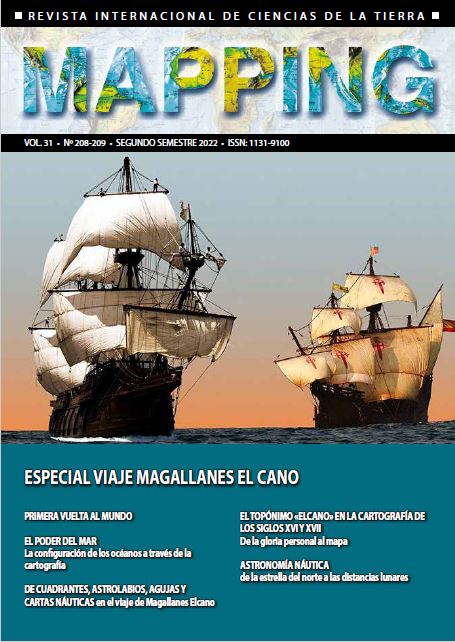Primera vuelta al mundo
DOI:
https://doi.org/10.59192/mapping.426Keywords:
Maritime Expansion, Moluccas, Magellan, Elcano, Round the World TripAbstract
There are great deeds of transcendence in humanity that were not planned, that were not intended, that were not even prepared for. On the contrary, they were the result of circumstances or improvisation. At the beginning of the 16th century, it was already known that the earth was round and the aim of oceanic navigation was to find sea routes linking Europe with Asia. In reality, the aim was to find new trade routes, which would lead to the era of the great discoveries. To understand the historical context in which these transcendental discoveries took place, we should situate ourselves in the Renaissance period, in the transition from the late Middle Ages to Modernity. We are talking about the emergence of Humanism. This was a period in which for Europeans there was only Asia and North Africa and which centred its commercial activity around the Mediterranean basin.But the East, the Far East, was a great attraction for European countries, especially after Marco Polo's travels in the 13th century, whose appeal was reflected in his book "Il Milione", better known in Castile as "El libro de las Maravillas" (The Book of Wonders). What attracted the Renaissance countries of the East? Traditionally it was silk, pearls, porcelain... to which they would add some extraordinarily valued
products: spices (cinnamon, cloves, pepper and nutmeg). These products fetched very high prices, higher in some cases than gold, and the Venetian and Genoese merchants stood out in the trade. But one event was to upset this situation: The fall of the city of Constantinople in May 1453, which would mean the end of the Byzantine Empire. From then on, it was the Ottomans who controlled this market, which led the European powers of the time to look for new trade routes, in this case Sea Routes.
Downloads
Downloads
Published
How to Cite
Issue
Section
License

This work is licensed under a Creative Commons Attribution-NonCommercial-NoDerivatives 4.0 International License.





